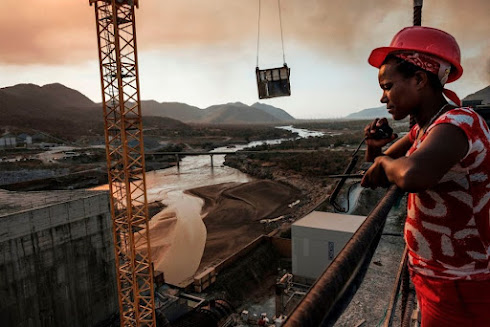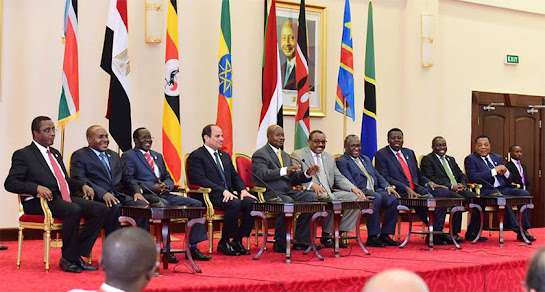Conclusion
I admit this has been a GERD dominated series, but I hope its been clear why... This is the foremost hyropolitical issue on the African continent that is shaping a new geopolitical landscape.
I hope this series has been an informative journey from why dams are built and their ecological and political consequences, particularly how the GERD is illustrative of how conflict can arise when societies fail to adapt to hydrological changes. The Nile basin is a story of states balancing basic human needs, ecological integrity, transboundary commitments and economic development. At the end of the day decision making in the developing world will favour economic growth, thoughts to political and environment consequences usually come later. Dam building is but one aspect of where a macro political vision exposes the disproportionate voices of water users, triaging the needs of populations and other riparian states.
I also acknowledge there have been times where I have fallen into the trap of simply framing water scarcity as the lack of flow of water. As mentioned in Water Wars II, it is effective management that ensures the availability of water, not just changes to the flow of the Nile. It is just the nature of having to be selective in case studies and themes. In keeping with the introductory post, the African continent is vast and context matters when considering case studies.
However, I do feel there are lessons to be learned outside East Africa regarding the consequences of water resource that apply to the Nile Basin. These lessons matter if there is to be any meaningful progress in avoiding conflict. While significant dams and irrigation projects in the region mean the flow of the river is finite, if properly managed, exploitation of the Nile can continue indefinitely.
It is important to understand the corners of all riparians and why assumed influence over decisions about the Nile. Admittedly the GERD has been an absolute nightmare for regional cooperation, but equally, no other issue has forced dialogue for improving water management and political cooperation across the entire basin, not just Ethiopia, Sudan and Egypt. Egypt and Sudan must concede their time as the dominant voices on the Nile and consider the growing development needs of upstream ripairans.
Finally, these blogs have attempted to dispel the idea that water war is looming. It is a possibility, as proven by Darfur, but again that too showed solutions are found in cooperation and good resource management. The GERD can and should benefit the entire region by extending the cooperation between the three riparians and NBI, perhaps leading to more responsible management. But for now, there is still work to be done...

TOWARDS COOPERATION! A tripartite summit between Egypt, Sudan, and Ethiopia in 2018 attempting to unify attitudes towards the GERD. (Source)




Comments
Post a Comment